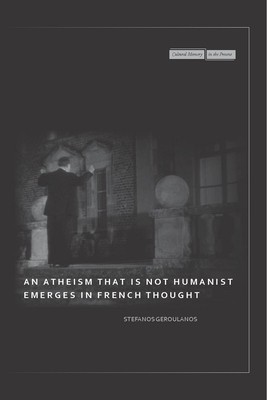
- We will send in 10–14 business days.
- Author: Stefanos Geroulanos
- Publisher: Stanford University Press
- ISBN-10: 0804762996
- ISBN-13: 9780804762991
- Format: 15 x 22.6 x 2.5 cm, minkšti viršeliai
- Language: English
- SAVE -10% with code: EXTRA
An Atheism That Is Not Humanist Emerges in French Thought (e-book) (used book) | bookbook.eu
Reviews
Description
French philosophy changed dramatically in the second quarter of the twentieth century. In the wake of World War I and, later, the Nazi and Soviet disasters, major philosophers such as Kojève, Levinas, Heidegger, Koyré, Sartre, Merleau-Ponty, and Hyppolite argued that man could no longer fill the void left by the death of God without also calling up the worst in human history and denigrating the dignity of the human subject. In response, they contributed to a new belief that man should no longer be viewed as the basis for existence, thought, and ethics; rather, human nature became dependent on other concepts and structures, including Being, language, thought, and culture. This argument, which was to be paramount for existentialism and structuralism, came to dominate postwar thought. This intellectual history of these developments argues that at their heart lay a new atheism that rejected humanism as insufficient and ultimately violent.
EXTRA 10 % discount with code: EXTRA
The promotion ends in 23d.15:37:15
The discount code is valid when purchasing from 10 €. Discounts do not stack.
- Author: Stefanos Geroulanos
- Publisher: Stanford University Press
- ISBN-10: 0804762996
- ISBN-13: 9780804762991
- Format: 15 x 22.6 x 2.5 cm, minkšti viršeliai
- Language: English English
French philosophy changed dramatically in the second quarter of the twentieth century. In the wake of World War I and, later, the Nazi and Soviet disasters, major philosophers such as Kojève, Levinas, Heidegger, Koyré, Sartre, Merleau-Ponty, and Hyppolite argued that man could no longer fill the void left by the death of God without also calling up the worst in human history and denigrating the dignity of the human subject. In response, they contributed to a new belief that man should no longer be viewed as the basis for existence, thought, and ethics; rather, human nature became dependent on other concepts and structures, including Being, language, thought, and culture. This argument, which was to be paramount for existentialism and structuralism, came to dominate postwar thought. This intellectual history of these developments argues that at their heart lay a new atheism that rejected humanism as insufficient and ultimately violent.


Reviews